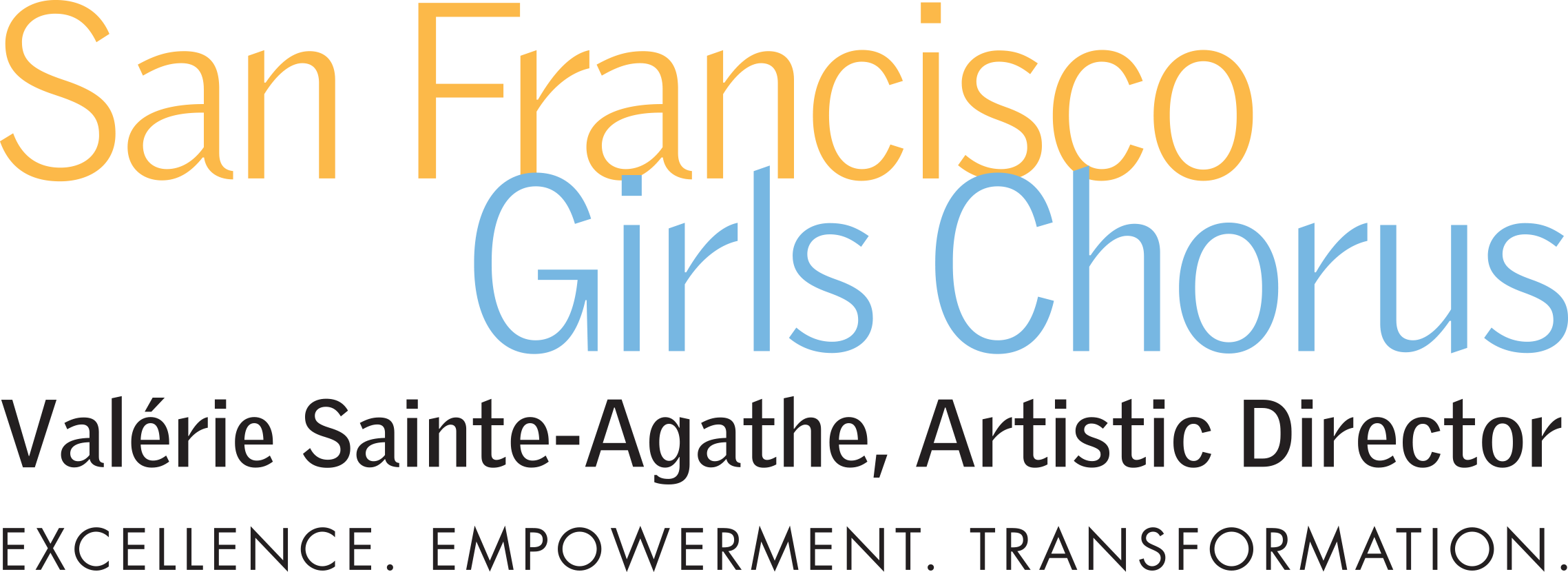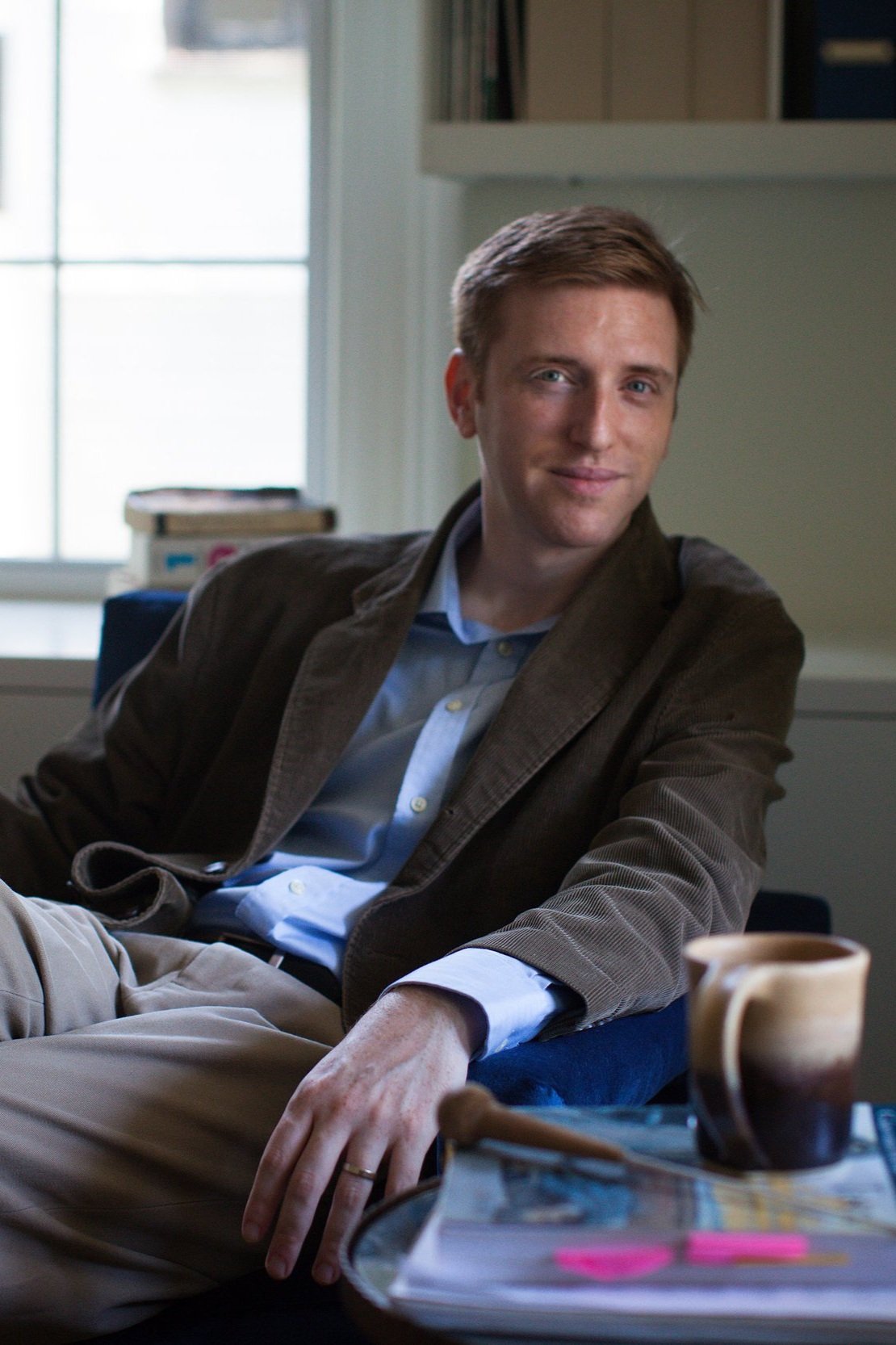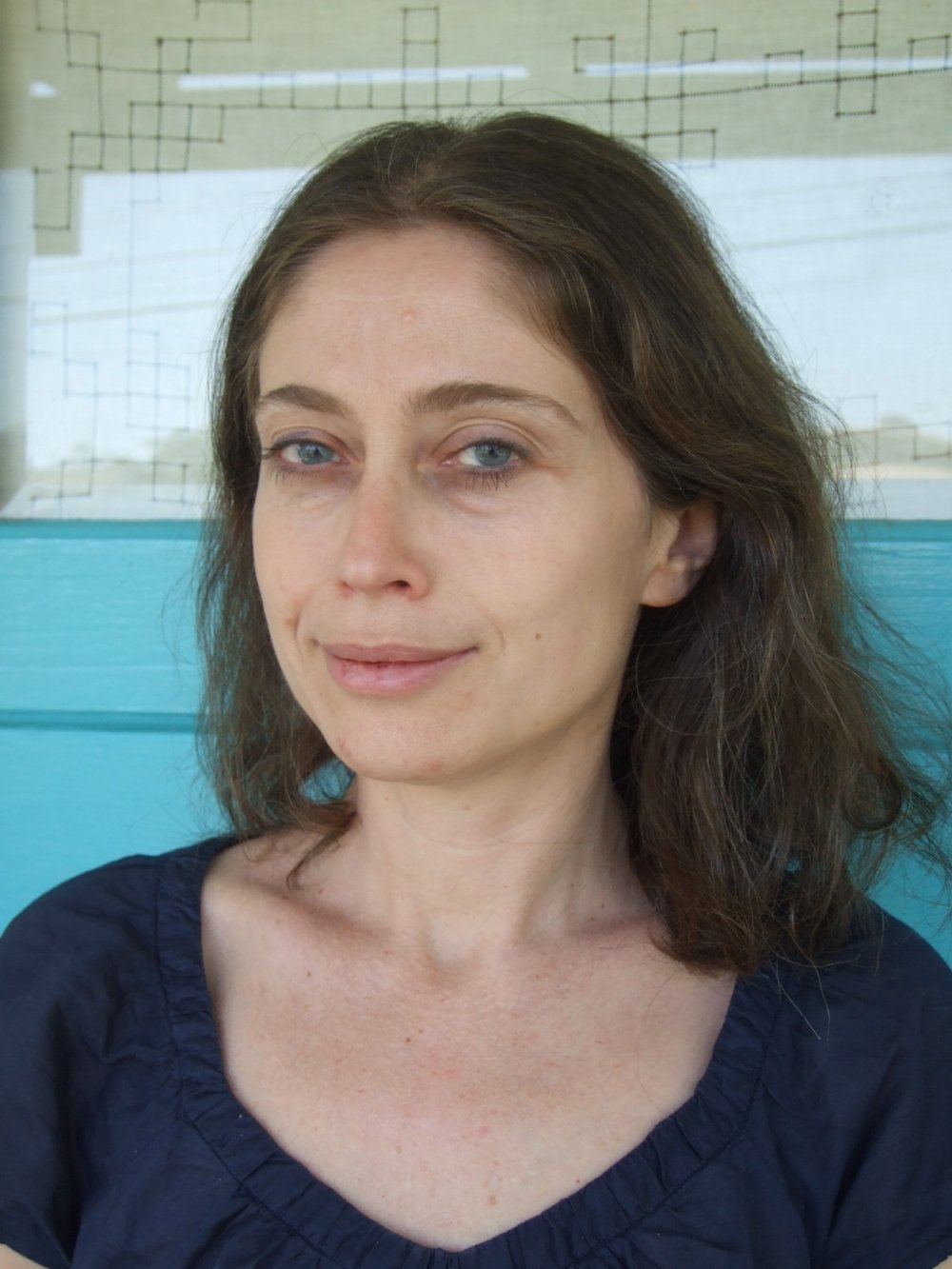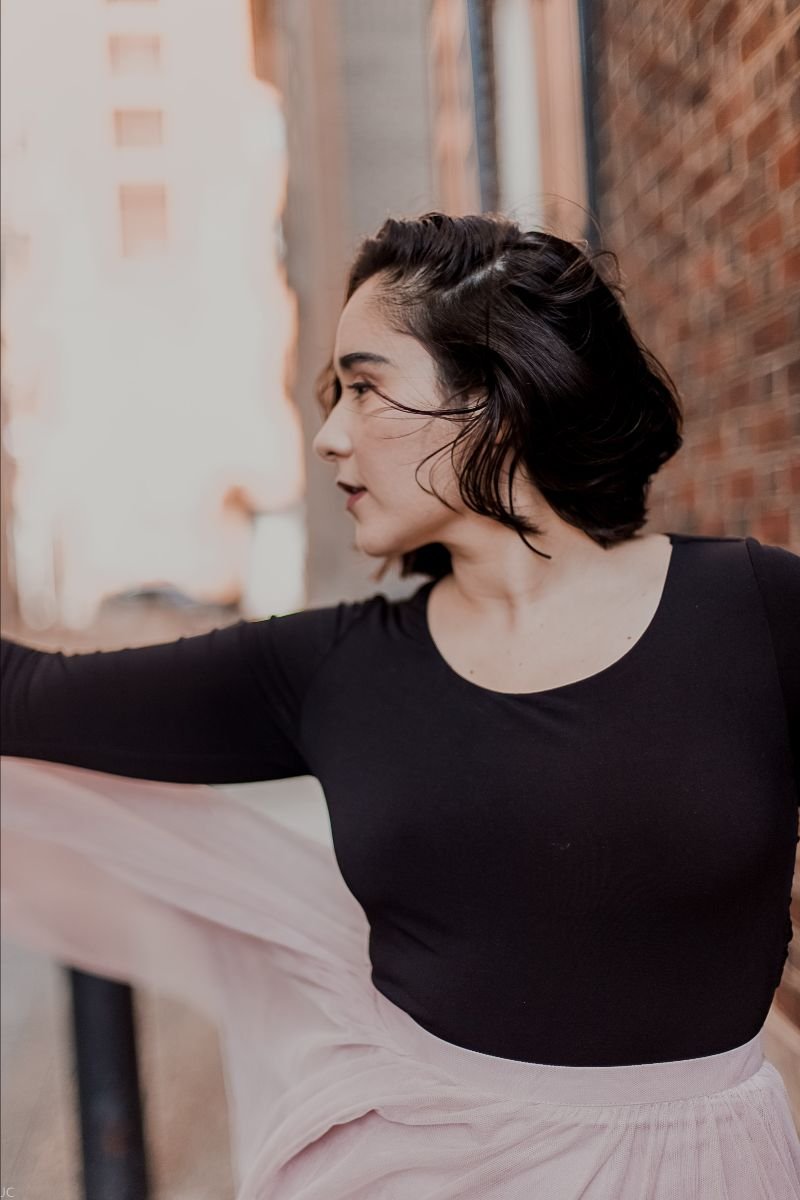Postcard from David Hanlon and Ashley Robillard
This week’s postcard features David Hanlon, composer of “The Pigeon Keeper”, a new opera commissioned by Santa Fe Opera as part of their Opera for All Voices program, and soprano Ashley Robillard who will perform the role of Orsia. Opera for All Voices is dedicated to commissioning new operatic works for audiences of all ages. SFGC’s Premiere Ensemble recently recorded an excerpt from this new work which will be featured on Santa Fe Opera’s Key Change podcast, and will participate in a series of in-person workshops with Santa Fe Opera at the Kanbar Performing Arts Center in January 2022.
DAVID HANLON, COMPOSER
David Hanlon
How did you first learn about SFGC?
I had a friend in college who was in SFGC. She shared music and recordings of her time there, and I was blown away. It's been a dream for at least twenty years to get to work with SFGC.
What is your favorite part about creating music? What about the creative process brings you the most joy? And do you have a least favorite part in creating music? If so, what is it and why? How do you move past creative obstacles?
My favorite part of creating music is when I'm in a room with others, where the idea becomes sound, the verbal and non-verbal back and forth as we explore the piece.
Getting stuck is my least favorite part. The solution is usually to get up from the piano or desk. Some ideas come better when walking, dancing, or in bed when I'm on the verge of falling asleep. I'm not above calling a friend either to say "Help!" Any shift in perspective helps knock things loose.
How did you prepare yourself to compose The Pigeon Keeper? Were there any techniques or tactics that you used in particular?
I checked out a lot of Greek folk music, especially some odd-meter folk dancing from Lesbos which made its way into the opera. I would also multi-track myself making clouds of bird-inspired sounds to discover what kind of gestures I wanted the chorus to do.
David Hanlon, composer, conductor and pianist
What inspired you to compose this story?
Playwright and librettist Stephanie Fleischmann and I wanted to create something that felt both timeless, like a fairy-tale, and was of today, in this case the ongoing refugee crisis with desperate people crossing the Mediterranean, passing through its islands. (The story's theme was also personal: Stephanie and I both come from Jewish refugee families. My grandparents escaped the Nazis only because a Quaker family in Connecticut, whom they had never met, agreed to sponsor them.)
How did this idea flourish to become a full opera? Can you explain your creative process for this particular work?
Stephanie and I have a back and forth on everything as we write it: a detailed treatment, the libretto, and then scene by scene as I compose. We also did a libretto workshop with actors, which gives us a chance to hear how it’s hitting, play with moving things around, and present it to a small audience. It is hard to overstate how much we are looking forward to this workshop with SFGC. Both Stephanie and I love the process of discovering things in the room, inspired by how the singers respond to what we've written.
Stephanie Fleischman, playwright and librettist
What is your goal or hope for this opera when it comes to reach and audience perception?
We've written this work as a family opera in the hopes that any age audience member will get something beautiful out of it, whether they come to it aware of its contemporary references or come to it fresh like a folk tale. The commandment of showing hospitality to the stranger is a theme of so many mythologies and folk tales, and I hope we're a worthy companion to those stories. I can't hope that the show will solve a refugee crisis. But it's a show about connection, how our connections persist even when we deny them. I hope that the audience and everyone making the opera will feel that connection to each other as we experience the piece, and perhaps a connection to the larger world as well.
We are still in the middle of a pandemic. What has helped you move forward during this time? Now that restrictions are easing, what are you most looking forward to in music?
One of the biggest joys in the pandemic was getting to hear SFGC sing the opening of the opera over Zoom this past spring. My music making largely stopped during the pandemic. That rehearsal was the first time I worked with anyone on my music since the pandemic began. When SFGC sang the piece, it felt as if they awakened a part of me that had been in a coma. Between that and these young women triumphing over the pandemic to create something so beautiful, it felt like a miracle, of being brought back to life. I've carried that feeling with me ever since.
ASHLEY ROBILLARD, SOPRANO
Ashley Robillard
What brought you into music?
I have been involved in music since I could talk. I think I started singing before I actually started talking! I was definitely one of those kids that was like, "ladies and gentlemen, boys and girls, I’m putting on a show on our stairwell!" Fortunately, I had parents who were extremely supportive and they enrolled me in after-school performing activities through the age of ten. Soon after, my friend’s mom became my first voice teacher and encouraged me to explore opera. At the time, I wasn’t really sold on any one area of performing arts and thought that I would become more involved with musical theater. My Dad's boss found out that I liked opera and insisted on taking me to my first one. They invited me and my parents and I felt electrified from the first moment the orchestra began tuning. I just knew at that moment that this is what I was going to be doing for the rest of my life. I've never felt anything like that moment; it was as if my entire body was electrified. I still tear up when I hear orchestras tune.
What is your favorite part of performing? What about it brings you the most joy?
At the macro level, I love community and collaboration because that feels more intentional to me and something that you’re building together. I really do think art-forms like opera that require a team of people to bring it to life is truly inspiring to be a part of. It’s humbling because while you have an important part to play, at the end of the day, you are one part of many. When we remind ourselves that art is ultimately collaborative, this helps us to get out of our heads and see that it is simply a gorgeous transformative piece of work that we are bringing to other people.
And then on the micro level, there are these transcendent moments that happen on stage, especially when you’re in the zone. Once you have your technique figured out, you know you only have to check in on a few things, and you can really let yourself get intentionally lost in the experience. When you know you can trust yourself and the people around you enough to let go in that way, it is incredible. It’s a feeling unlike any other and I am just obsessed with it and grateful to get to experience it.
How are you preparing yourself for The Pigeon Keeper? Are there any specific techniques or tactics that you use for this particular show?
Right now, I am very much immersed in my score. There are many things I like to do in order to help my brain understand what’s going on on the page. Contemporary works can be a little harder to prepare because they often use different techniques, extended techniques or different vocation styles. I put a lot of color coded markings in my scores so that I can clearly see where the music is going or where everything lines up. Listening is an important part of the process and I am very grateful to have attended and received recordings of SFGC rehearsals to help me find my footing, especially since I am on the other side of the country.
David Hanlon, the composer, lives near me so I’ve been able to rehearse with him. This is always an invaluable experience because the composer knows the music better than anyone and it helps not just with the actual music notes but also exploring his vision for the character so that I can then continue to infuse it in everything that we do. Also, there is nothing quite like seeing a composer’s face when their music is finally being realized by someone! These workshops and coachings are the first time they hear their music outside of their own head. There’s this energy that comes over a person when they’re having that experience and it is such a beautiful thing to witness.
Ashley Robillard performs Mi tradì (excerpt) from Mozart's Don Giovanni with the Curtis Opera Theatre and the Curtis Symphony Orchestra
What made you want to participate in telling this story? What intrigued you about the story?
I was not prepared for how intense the story was and when I first read the score, I cried. The character that I play, Orsia, is a child that has experienced a lot of trauma which, on a certain level, is relatable for me. But she is so pure, so good, with strong morals and ethics, and just an innate helper. It’s just incredibly interesting to play the role of a character that is young and unmarred by the world, yet at the same time a little marred and very experienced, in ways she doesn’t understand and can’t begin to process. She’s sort of acting on impulse through them...I think she’s the loveliest being.
This is a great introduction point for people to get into opera which is incredibly important, not just because I think the art-form is a great way to tell stories, but because I want people to see that contemporary stories can be told in this way.
I want this intro to be one that is also relatable. I hope that the character I play feels familiar to people because she feels familiar to me. I hope that anyone who has had a complicated relationship with their parents or has lost a parent or a sibling can find some sort of catharsis in the struggle that Orsia and her father have with one another. This is a such a raw and real experience that people go through.
We are still in the middle of a pandemic. What has helped you to keep moving forward during this time?
My partner was instrumental in getting me through this time. We’re both musicians and opera singers and I’m incredibly grateful to have gone through this painful experience with him dealing with loss and processing grief together.
As much as there was deep depression and heartbreak, there also was a lot of laughter. I’m already someone who would always tell people to do things outside of their art-form because you will make better art if you are well-rounded. But apparently I hadn’t taken my own advice as much as I thought. And honestly, video games and tabletop games! Games like Dungeons and Dragons can be really fun for character development and getting to know the character you’re playing in an opera.
Now that restrictions are easing, what are you most looking forward to in music?
In classical mainstream culture, I am thrilled to see that we are starting to have conversations that always existed but were just not being discussed by people in power nor were they being discussed by a large scale majority. I am hopeful that the resulting changes remain not just at the performing level but also the institutional and educational levels. It’s one big sandwich and if we just deal with the filling and we don’t deal with the bread at either end, then that bread can get moldy. I do hope that we keep having these conversations and that we not only look at the present but we look at our infrastructure for the future.
For our choristers, can you tell us what skills or qualities you think are important in order to be a professional musician?
You need to find out what works specifically for you. One thing could be great for one person and the worst thing on earth for another person. My teacher in high school always used to say that when you enter the rehearsal room, you should all be in the same place, but you all probably took different paths to get there. You do not need to judge yourself by anyone else’s metrics because no two people are going to have the exact same experience. Find what works for you. Finally, develop a world outside of music because it’s healthy for you as a person and be sure to have a strong support system.
Ashley Robillard (soprano) and Grant Loehnig (piano) perform Der Mond kommt still gegangen by Clara Schumann.





